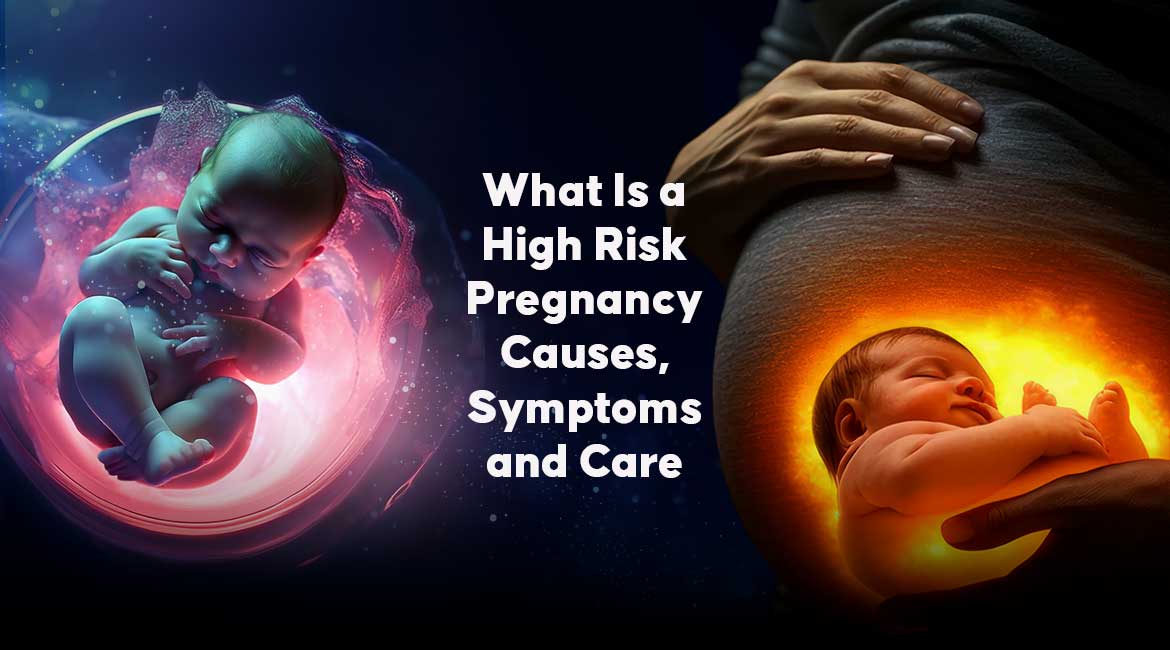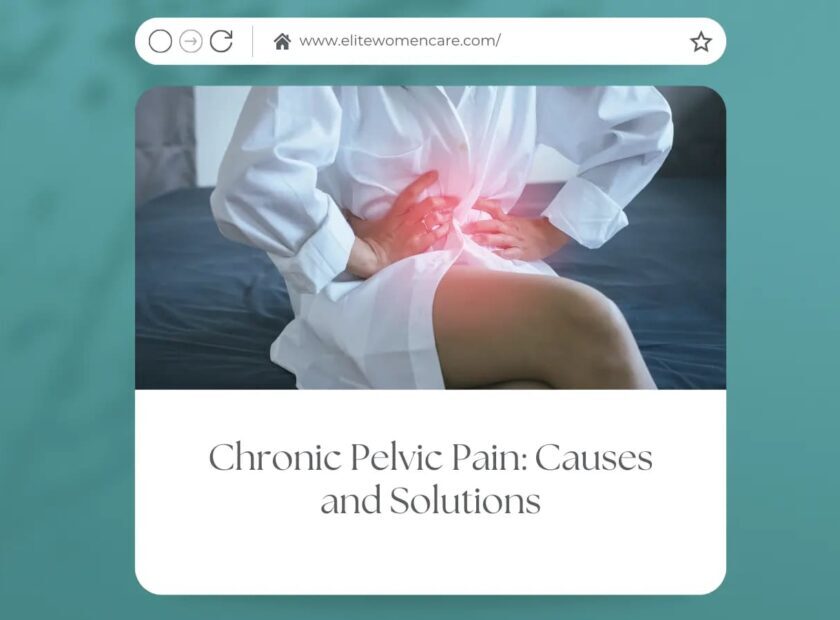
What Is a High Risk Pregnancy? Causes, Symptoms, and Care
In today’s dynamic healthcare landscape, addressing a high risk pregnancy is essential to safeguarding both maternal and fetal health. Pregnancies falling under this category require specialized monitoring and individualized treatment plans that help manage complex issues before they escalate into serious health concerns.
As advancements in medicine continue to transform maternal care, increasing awareness of pregnancy complications and the importance of early detection has become paramount. With the integration of innovative techniques in prenatal care for high risk pregnancies, many families now experience enhanced support and improved outcomes despite the challenges these situations may present.
Understanding High Risk Pregnancy
Understanding what constitutes a high risk pregnancy is the first step toward effective management and care. Various factors; including preexisting medical conditions, advanced maternal age, and lifestyle influences: can elevate the overall risk level, necessitating careful attention from healthcare providers. When these elements converge, the pregnancy is classified as high risk pregnancy, signaling that a more vigilant approach is required to ensure the safety of both mother and baby.
In addition to medical and lifestyle factors, genetic predispositions and environmental exposures also play significant roles. Recognizing these influences early enables both expectant mothers and their care teams to devise tailored strategies that minimize risks. Specialists in high risk obstetrics frequently collaborate with other experts to create individualized care plans that address the unique challenges posed by complex pregnancies.

Causes of High Risk Pregnancy
Multiple factors contribute to a high risk pregnancy, ranging from chronic conditions like hypertension and diabetes to acute issues that emerge during gestation. Preexisting illnesses, when combined with new medical developments during pregnancy, can pave the way for additional challenges. Often, these underlying causes trigger further pregnancy complications, making early diagnosis and intervention critical for a positive outcome.
Beyond medical conditions, environmental and genetic influences can also complicate a pregnancy’s course. Healthcare providers specializing in high risk obstetrics work diligently to identify these triggers through comprehensive screenings and assessments. By understanding the root causes, they can implement preventative measures that reduce the likelihood of adverse events and support healthier progress throughout the pregnancy.
Identifying Pregnancy Complications and Symptoms
Early detection of pregnancy complications and associated symptoms is crucial in managing a high risk pregnancy. Regular evaluations help healthcare professionals detect subtle yet significant signs; such as abnormal fetal movements, changes in blood pressure, or unexpected swelling: that might otherwise go unnoticed. Recognizing these early indicators allows for prompt intervention and helps prevent the progression of more serious conditions.
Subtle symptoms, including persistent fatigue or shifts in appetite, can easily be misinterpreted as typical pregnancy experiences. However, when these signs persist, they warrant a more thorough investigation. Comprehensive diagnostic tests and consistent monitoring provide a critical safety net, ensuring that any emerging pregnancy complications are addressed swiftly and effectively.
Comprehensive Care for Expectant Mothers
Managing a high risk pregnancy requires a comprehensive, multidisciplinary approach that goes far beyond routine checkups. From lifestyle modifications and nutritional guidance to advanced medical interventions, every aspect of care is designed to protect both mother and baby. Implementing a tailored approach to prenatal care for high risk pregnancies can significantly enhance outcomes by addressing each unique challenge with precision and care.

Collaboration among specialists is paramount in this process. Experts in maternal fetal medicine, high risk obstetrics, and other related fields join forces to continuously monitor the health of both mother and child. This collaborative framework ensures that any sudden changes in the mother’s condition are met with swift, evidence based interventions, reinforcing a commitment to comprehensive, personalized care.
The Role of Maternal Fetal Medicine
Maternal fetal medicine is a specialized field dedicated to managing complex pregnancies with multiple risk factors. Professionals in this area are trained to handle intricate cases, ensuring that both the mother and fetus receive the highest level of care available. Their expertise is particularly crucial when confronting the challenges inherent in a high risk pregnancy, where every decision can have a lasting impact on outcomes.
These specialists work closely with other healthcare providers to monitor early warning signs and implement effective preventive strategies. Through the use of advanced imaging, laboratory testing, and continuous monitoring, maternal fetal medicine helps in mitigating risks and addressing any deviations from normal progress. Their proactive approach is instrumental in reducing the incidence of severe pregnancy complications.
Navigating High Risk Obstetrics
Navigating high risk obstetrics requires a strategic approach that blends cutting edge technology with compassionate, patient centered care. Specialists in this field are adept at assessing complex clinical scenarios, ensuring that both anticipated and unforeseen challenges are met with effective solutions. Their expertise in managing high risk pregnancy cases offers critical support throughout the entire gestational journey.
A multidisciplinary team is at the heart of successful outcomes in high risk obstetrics. These experts work in unison to monitor subtle changes in the mother’s condition, applying evidence based practices and real time monitoring techniques to safeguard health. Their commitment to reducing severe health risks through diligent care ensures that every mother receives the attention needed for a safe and healthy delivery.
Ensuring Optimal Prenatal Care for High Risk Pregnancies
Ensuring optimal prenatal care for high risk pregnancies is vital for maintaining the wellbeing of both mother and child. Regular evaluations, specialized screenings, and personalized interventions form the backbone of this care model. By detecting potential issues early and adjusting treatment plans accordingly, healthcare teams can create a protective environment that supports positive outcomes.

In addition to routine checkups, lifestyle modifications such as balanced nutrition and stress management are key components of effective care. Integrating insights from maternal fetal medicine and leveraging state of the art monitoring technologies further refines these strategies. Ultimately, a commitment to thorough prenatal care for high risk pregnancies not only fosters safer deliveries but also contributes to long term health benefits for both mother and baby.
Final Thoughts on Nurturing Both Mother and Baby
In summary, the journey through a high risk pregnancy is undeniably complex, demanding a blend of expert knowledge, personalized care, and continuous monitoring. Early identification of causes, vigilant observation of symptoms, and collaborative efforts among specialists in high risk obstetrics and maternal fetal medicine empower mothers to navigate these challenges with greater confidence and resilience.
While the hurdles associated with high risk pregnancy are significant, ongoing advancements in medical technology and a proactive approach to prenatal care for high risk pregnancies continue to reshape the landscape of maternal health. By staying well informed and working closely with dedicated care teams, expectant mothers can overcome obstacles and embrace a future filled with hope and promise for both themselves and their newborns.



